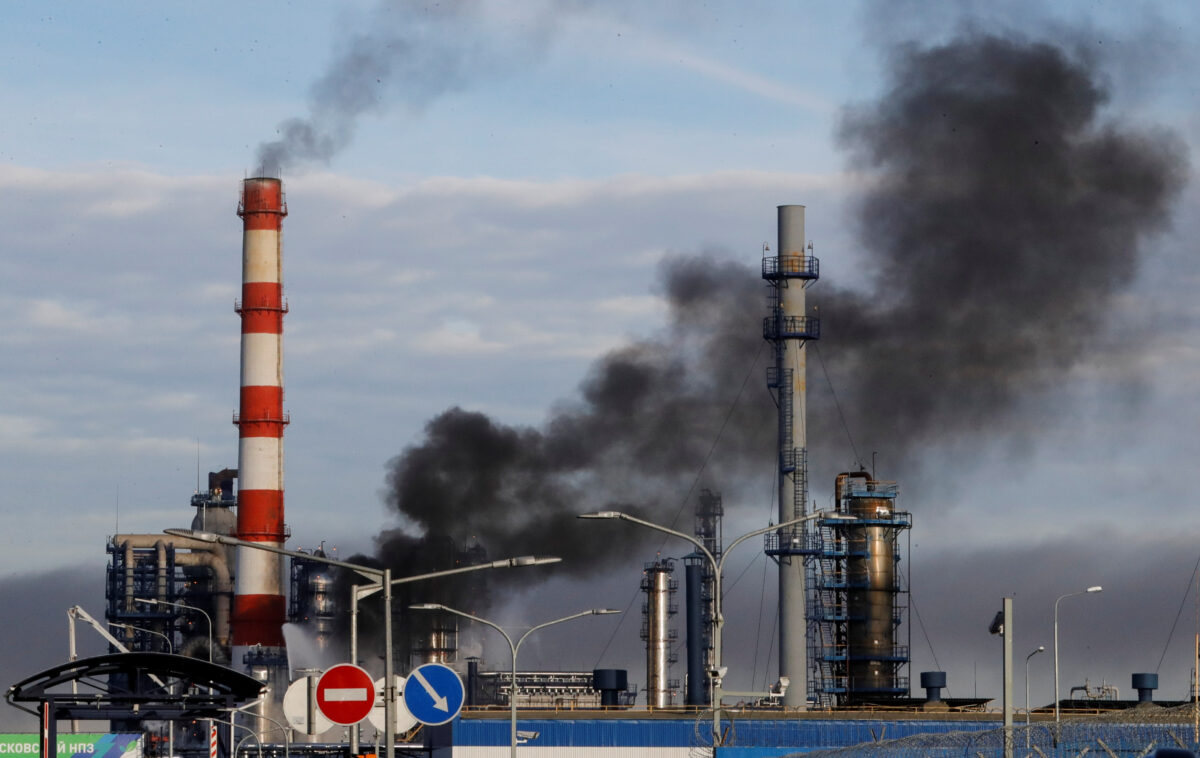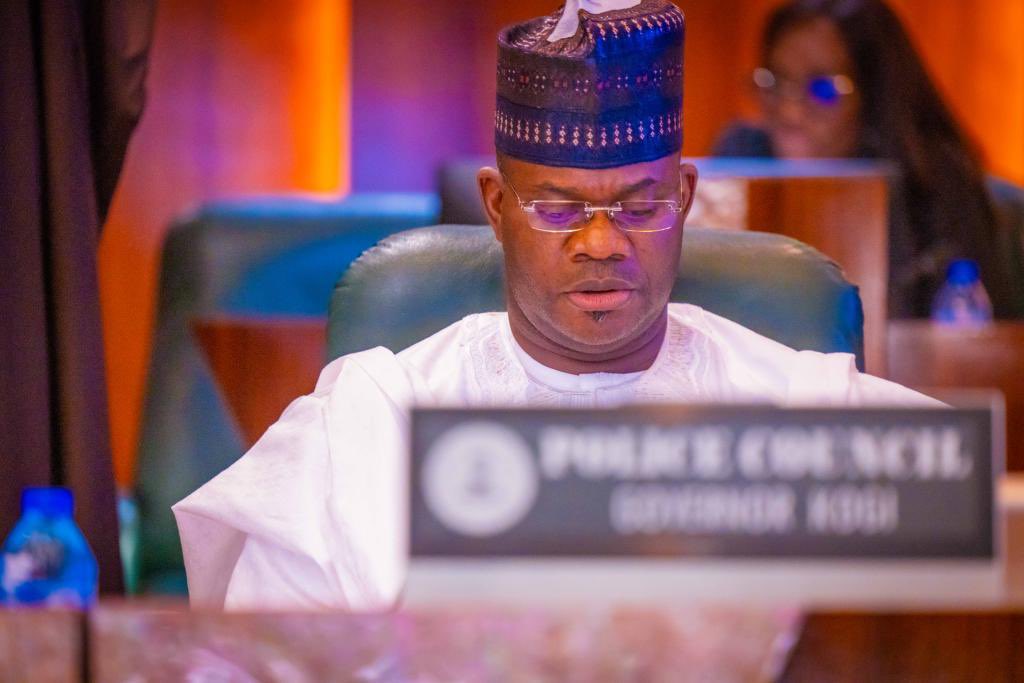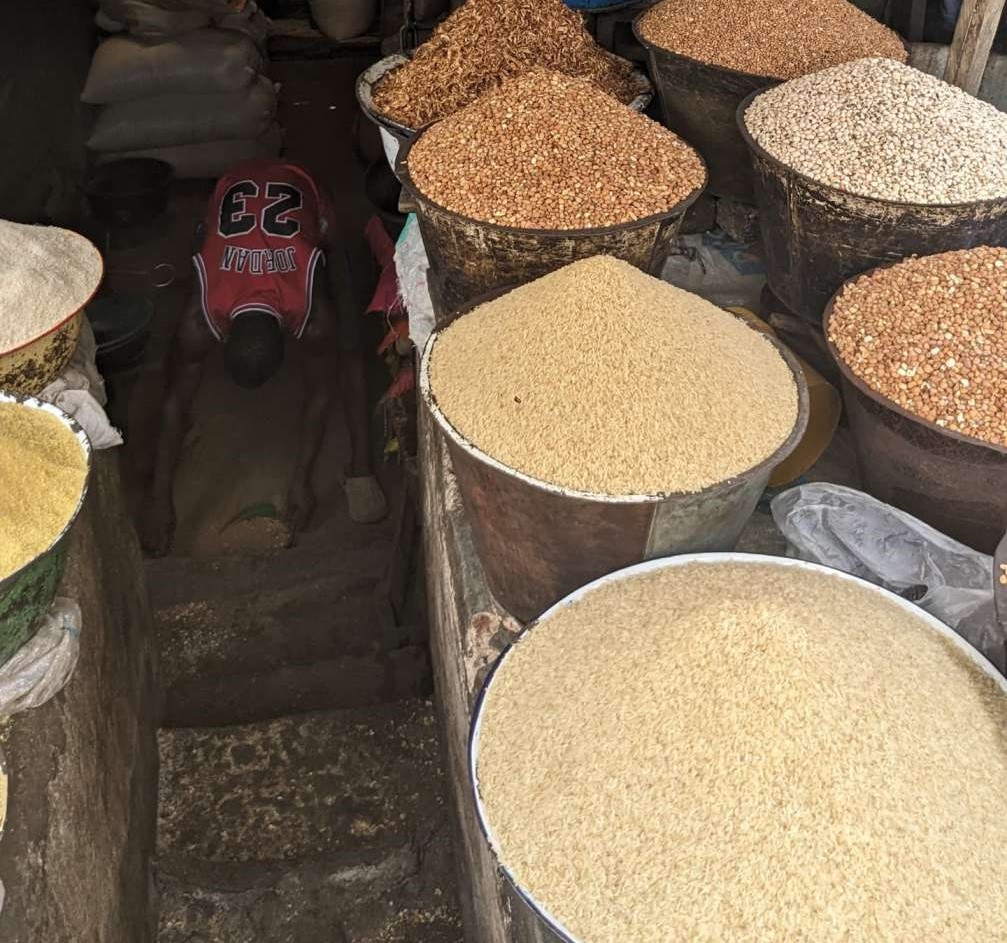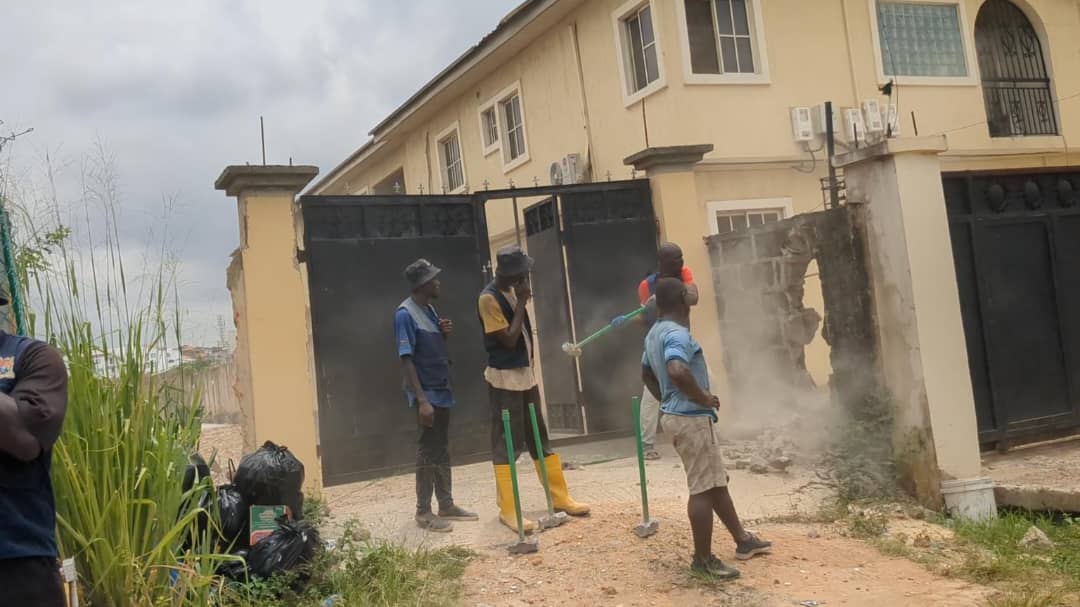LAGOS, NIGERIA
For more than 50 years now, Nigeria’s major source of foreign income has been crude oil, but the oil wealth comes at a great cost: death and devastation of the ecosystem. An investigative journalist, Gabriel Ogunjobi, reports on the activities around oil refining, the compromises and stakes made for Africa’s most populous nation. Split into three parts, this second report dwells on the impacts of Dangote’s near-completion refinery on a Lagos fishing community.
One of the ships used to transport construction materials for refinery berthed at the seaport at the Ibeju Lekki jetty.
Moored boats at the jetty
Idowu Abimbola was leaning on one of the moored boats, knitting new silk to fix a tangled fishing net. The sun had set, and while many fishers had retired to their shelters, he needed to tarry by the shore and fix his wrecked equipment so he could fish the following day. He appeared frustrated by the hurdle that has become the nightmare of every fisher in Ibeju Lekki. When fishers cast the net upon the ocean, they paddle their boats back to the shore and wait for a few hours or sometimes overnight, expecting that varieties of fishes would have been trapped on their return. This was the fishing culture for decades, until dredging began on the Lekki water around 2019. In December 2020, a lawmaker at the National House of Representatives raised a motion against Dangote Group and Lekki Port LFTZ over “an unprecedented dredging of the sea, causing unquantifiable erosion of the seashore, leading to destruction of building and fishing equipment and making fishing almost impossible”.
Aliko Dangote, 65, Africa’s richest man, embarked on a project: building the largest single-train refinery in the world. The $19.5 billion project attracted the bourgeoisies, oil magnate, Femi Otedola and Bola Tinubu, a former Lagos State Governor and 2023 presidential hopeful. Nigeria’s President Muhammadu Buhari also visited the project site in March. This refinery, built in a fit of pride, was meant for a period like this, when the nation experiences an economic downturn from dwindling global fuel price and long-held fuel subsidy scandals. The government-owned Nigerian National Petroleum Corporation (NNPC) has acquired a 20 percent stake in the investment, hoping to end its gasoline imports through Dangote’s refinery. The refinery is complemented by a fertilizer plant and a private seaport for the receipt of all cargoes for the construction.
With ships berthed near at the Lekki jetty, activities at the jetty and the oil refinery pose an environmental threat to indigenous fishing communities near the Atlantic Ocean. The fish are disappearing, and the fishers’ shelters are being washed away by the Atlantic, displacing the low income earners living on the shoreline. To these hundreds of victims, a refinery is a curse rather than a blessing.
OIL, YES; FISHING, NO
Apaakin community, like other fishing communities in Ibeju Lekki, can no longer fish at the shore near their shelters except they travel to the jetty. The fishers complain about the rising sea level, partly blaming it on the refinery/seaport construction activities.
Idowu Abimbola
The woes betiding the likes of Abimbola are a constant reminder of the lawmaker’s concern on the fishing community. The fisher had hoped to catch fishes when he laid his net at the Lekki jetty axis of the Atlantic. As the net sunk deep into the water, a dredging bar buried underneath hooked it. Abimbola would later recover the net awash to a shore, dirty and useless. So, he paddled the boat back home. “Sometimes, we see the engineers dredging on the sea, but we can’t say anything,” Abimbola complained.
A bundle of silk sells for N20,000. When Abimbola’s net was wrecked from that single expedition, it cost him more than N100,000 to procure five bundles. It is easier for fishers to run into debt with the dwindling economy.
Back at the jetty where he narrated his ordeal, he was joined by a co-fisherman, Musemiu Safiriyu, who gave no more than a hint that their predicaments had doubled. Apart from their financial struggles with damaged boats and fishing nets, climate change threatens housing in the community, and its impacts are aggravated by unregulated engineering works on Lekki water.
Among the fishing camps spread across the various villages surrounding the Atlantic is Ibeju Lekki, where over 3,000 people once lived. In the recent years, the rise in the sea level, influenced by climate change and the seaport dredging, expanded the reach of the water.
“Before now, if you are hungry, you just need to fuel the boat with N1,000 and stay at the tip of Olokun (the Yoruba word for the sea), your bucket will be full with fishes to eat and merry for days,” one of the women I met at the jetty on my second visit said, attempting to compare the old with the current situation.
Although Nigeria has an Atlantic coastline of 853km (530 miles), it remains Africa’s largest importer of fishes, with a demand for more than 3 million metric tonnes each year. Some of the fishers bridging the demand gap are currently plagued by the nation’s glaring priority for oil refining.
The Lekki indigeneous fishers said they now have to travel past 20 meters on the sea before they are able to fish at all, buttressing the point about fishes vanishing. On my second day at the shore I met these women relaxing under the shade. There were black bowls of fish, half full.
Another woman, Olasunkanmi Adelaja, says: “I was born into fishing over 50 years ago now. When our fathers were alive, the village Apaakin Oniyanrin was where we fished, but we can’t do that there anymore. In this year, we might have to leave our home because of the violence of the Olokun fast approaching us.”
Musemiu Safiriyu went missing for hours after his boat developed a fault on the Atlantic while fishing a long distance.
In the middle of our conversation, someone came to break the news that would end our chat. Safiriyu, whom I had met the evening before, had gone missing on the sea.
He was found after a long haul. When I called him some days after, he told me his boat broke down in an unfamiliar path on the sea, making it difficult for people to come to his aid on time.
Fishers would not have to risk their lives paddling such long distances if fishes were within reach.
‘BURROWED HOMES’
When ocean waves hurl violently in Apaakin, they burrow through the coconut trees protecting the houses and pull them down.
When the ocean waves hurl violently in Apaakin, like other towns inside Ibeju where it is no longer possible to fish, they burrow through the coconut trees protecting the houses and pull them down. Again, they rush forward, collapsing the houses, mostly built of sand gathered at the shores and covered with palm fronds. The surge is no respecter of the living or the dead. It threatens houses too, and the graves are washed away.
In one of such turbulent moments in 2020, Orlando Oseni’s house was wrecked by the ocean tide. From what the 70-year-old man said, the village had never experienced a sea rise of that magnitude.
This is the oceanfront of the Atlantic at Ibeju Lekki.
“It is no other thing than the construction works at that jetty,” he said. “As you can see, there are no boats here again because we moved all of them to the jetty since we cannot fish here again.”
His brothers’ houses were also affected, but Oseni managed to rebuild his. Some residents have since relocated. Apaakin Town Hall is halved by the water as well, leaving one part for people to defecate in.
Pa. Oseni
Oseni warned that there would be more collapses if “pillars are not built at the shore before the rainy season later in the year”.
“And we have told them but nothing is being done about our plight,” he said.
Anthony Chiejina, the Chief Corporate Communications Officer of the Dangote Group, told this newspaper that the company had no knowledge of the plights of the Ibeju Lekki fishing community. “Nobody has brought that complaint to us”, he said before inviting this journalist for a media tour to the project site for an “explanation of the processes”.
At the inception of the refinery project, Dangote Group promised a climate-friendly refining, but this investigation showed that the realities are contrary for fishermen and women in Ibeju Lekki.
Our Geographic Information System (GIS) investigation confirmed that the refinery activities have plunged the Atlantic, causing drastic impacts on the communities ashore.
As a result of this, to eke out a living has become a nightmare for the fishers, especially with heightened climate change threats in the last few years.
Credit: Mansir Muhammed
Satellite imageries show significant progress on the Atlantic shore in Ibeju Lekki. Red Circle in the port development by 2017.
Credit: Mansir Muhammed
Satellite Image: Apaakin village, Ibeju Lekki, west of Dangote refinery. Image Credit: Google Earth Pro.
Construction of the Dangote Refinery began in 2016 with excavation and preparation of the site for further development. This preparation involved filling of the ocean basin with sand, especially for the construction of a seaport. The sand filling was used to extend the coastal land surface into the Atlantic Ocean.
Due to this, the ocean shorelines continued to extend inland towards the coastal communities of Ibeju Lekki.
Credit: Mansir Muhammed
Satellite Image: Apaakin village, Ibeju Lekki, west of Dangote Refinery. Image Credit: Google Earth Pro.
Leveling the ocean allowed the water to extend into the land, progressively redefining its shorelines. The Atlantic ocean’s boundaries have progressed about 57 metres inland since 2015, the year before construction started. Between 2015 and 2018, the shoreline extended inland by 12 meters and between 2018 to 2022, it extended by an additional 45 meters.
Speaking with this reporter, Steve Trent, founder of the Environmental Justice Foundation said the activities on the Atlantic could have effects on climate change.
He said: “The ocean is the world’s largest active carbon sink and the greatest nature-based solution for climate change mitigation we have. It gives us every second breath, producing vastly more oxygen than all the world’s forests combined, and absorbs around a third of the CO2 we pump out. But this only applies to a healthy ocean, and currently, our marine ecosystems are under severe stress. With fish populations plummeting around the world due to overfishing and harmful activities, we are not only jeopardising marine ecosystems, we are fuelling climate breakdown.
“In Lagos, a fisherman risks his life to catch fishes in the longest distance he has ever travelled on the Atlantic because a proposed refinery makes fishing herculean. With Nigeria’s regulatory failure on oil refineries, the nation’s old heritages — farming and fishing — are at a low ebb.
This report was funded under Health of Mother Earth Foundation’s fossil politics programme
Subscribe
Be the first to receive special investigative reports and features in your inbox.















